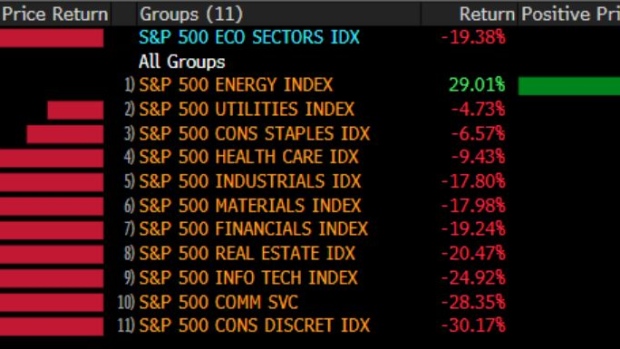Jun 24, 2022
Fund That Bet on Oil in Dark Days of 2020 Is Up 24% This Year
, Bloomberg News

(Bloomberg) -- Everyone recalls the crude crash of April 2020, when a glut of oil and nowhere to store it sent futures to negative $37.63 a barrel. For Charles Lemonides, it was the foundation of a trade that has made his stock fund the envy of an industry in an awful year for equity investors.
Lemonides, the founder and chief investment officer of ValueWorks, was buying back then for his now-$125 million long-biased hedge fund, which was up 24% for the year as of the end of May. It’s a rare outperformance in a market that’s fallen more than 20% since the end of December and that’s seen nearly every sector post losses.
In April 2020, when a barrel of oil went for minus $37, “the valuations became really, really out of whack, and very unconnected from long-term reality,” he said in an interview from his downtown-New York City office. “It didn’t make sense that prices wouldn’t get back to some economically viable level because we use oil in our day-to-day lives for very specific reasons that are important to us. And that’s not stopping in the next six months or two years.”
The ValueWorks Long-Biased Composite counts Whiting Petroleum Corp. as its top holding. Shares of the oil-and-gas exploration company are up 11% this year. It also owns Unit Corp., which has advanced nearly 50% in 2022, and Valaris Ltd., which has gained 21%. Outside of the energy space, Lemonides likes some dry-bulk shipping companies, as well as United Natural Foods Inc. and Netflix Inc.
“Many of them are still very, very inexpensive relative to the fundamental assets that are behind them,” Lemonides said of the oil firms. His long-biased fund returned more than 60% in 2021. (Lemonides also oversees another $150 million within separately-managed accounts.)
The energy sector, with a roughly 30% advance since the end of December, is the only S&P 500 group to rally this year. However, oil prices have cooled in recent days and the S&P energy index has given back some of its gains. Oil markets have been pricing in the risks of a global economic slowdown, with many economists warning the world economy could fall into a recession. West Texas Intermediate traded around $105 a barrel Friday.
But “oil north of $100 makes sense to me, and whether it’s $100 or $130, the oil producers will have great operating results and huge profitability anywhere over $80 a barrel,” Lemonides said. “I don’t think it makes sense that the share prices have come down as much as they have simply because the commodity price is down from $120.”
He added that security-specific stock-selection has mattered over the past 18 months. Over that span, as “extreme momentum has reversed, you’ve been able to have individual securities make you money when the market’s not making you money. And obviously that’s what’s happened for us this year.”
©2022 Bloomberg L.P.





